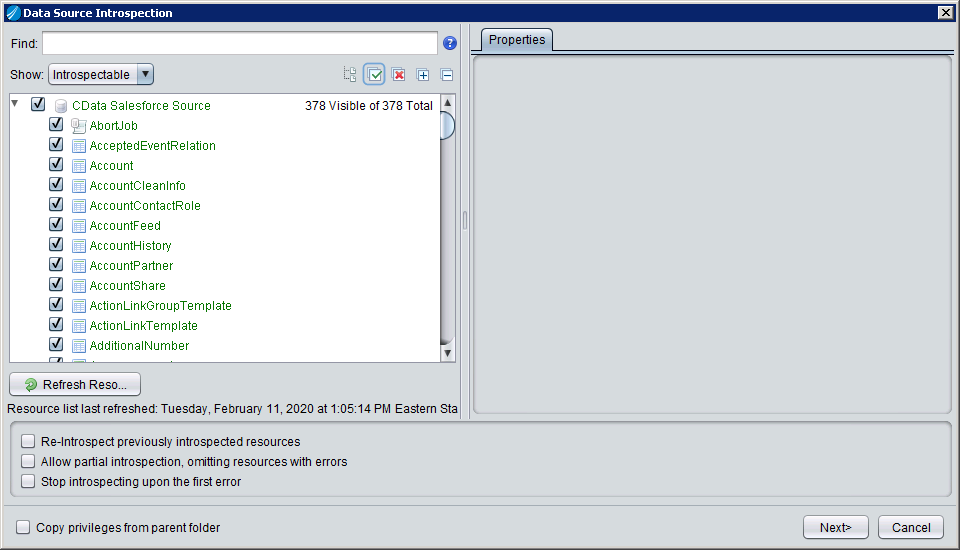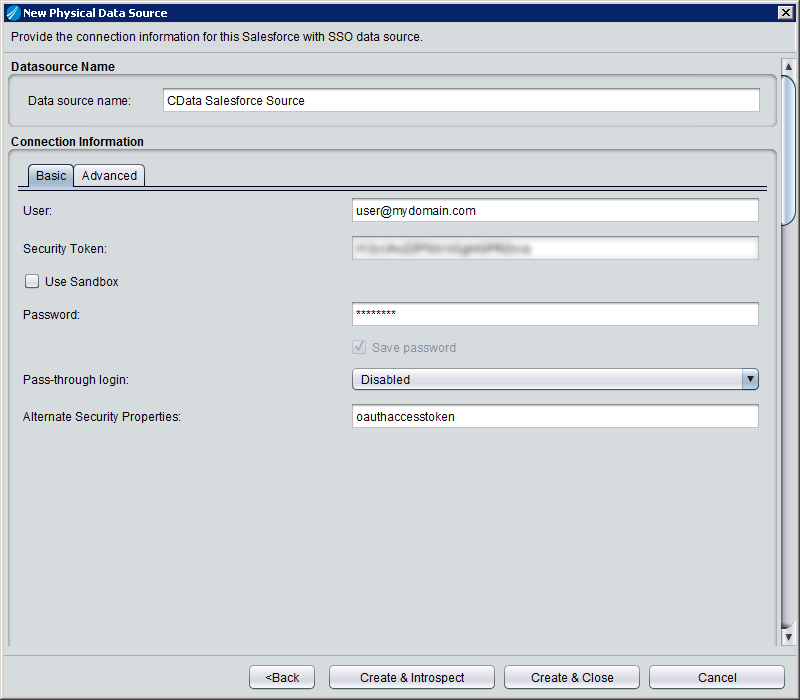Discover how a bimodal integration strategy can address the major data management challenges facing your organization today.
Get the Report →Access Live REST Data in TIBCO Data Virtualization
Use the CData TIBCO DV Adapter for REST to create a REST data source in TIBCO Data Virtualization Studio and gain access to live REST data from your TDV Server.
TIBCO Data Virtualization (TDV) is an enterprise data virtualization solution that orchestrates access to multiple and varied data sources. When paired with the CData TIBCO DV Adapter for REST, you get federated access to live REST data directly within TIBCO Data Virtualization. This article walks through deploying an adapter and creating a new data source based on REST.
With built-in optimized data processing, the CData TIBCO DV Adapter offers unmatched performance for interacting with live REST data. When you issue complex SQL queries to REST, the adapter pushes supported SQL operations, like filters and aggregations, directly to REST. Its built-in dynamic metadata querying allows you to work with and analyze REST data using native data types.
Deploy the REST TIBCO DV Adapter
In a console, navigate to the bin folder in the TDV Server installation directory. If there is a current version of the adapter installed, you will need to undeploy it.
.\server_util.bat -server localhost -user admin -password ******** -undeploy -version 1 -name REST
Extract the CData TIBCO DV Adapter to a local folder and deploy the JAR file (tdv.rest.jar) to the server from the extract location.
.\server_util.bat -server localhost -user admin -password ******** -deploy -package /PATH/TO/tdv.rest.jar
You may need to restart the server to ensure the new JAR file is loaded properly, which can be accomplished by running the composite.bat script located at: C:\Program Files\TIBCO\TDV Server <version>\bin. Note that reauthenticating to the TDV Studio is required after restarting the server.
Sample Restart Call
.\composite.bat monitor restartOnce you deploy the adapter, you can create a new data source in TDV Studio for REST.
Create a REST Data Source in TDV Studio
With the CData TIBCO DV Adapter for REST, you can easily create a data source for REST and introspect the data source to add resources to TDV.
Create the Data Source
- Right-click on the folder you wish to add the data source to and select New -> New Data Source.
- Scroll until you find the adapter (e.g. REST) and click Next.
- Name the data source (e.g. CData REST Source).
Fill in the required connection properties.
See the Getting Started chapter in the data provider documentation to authenticate to your data source: The data provider models REST APIs as bidirectional database tables and XML/JSON files as read-only views (local files, files stored on popular cloud services, and FTP servers). The major authentication schemes are supported, including HTTP Basic, Digest, NTLM, OAuth, and FTP. See the Getting Started chapter in the data provider documentation for authentication guides.
After setting the URI and providing any authentication values, set Format to "XML" or "JSON" and set DataModel to more closely match the data representation to the structure of your data.
The DataModel property is the controlling property over how your data is represented into tables and toggles the following basic configurations.
- Document (default): Model a top-level, document view of your REST data. The data provider returns nested elements as aggregates of data.
- FlattenedDocuments: Implicitly join nested documents and their parents into a single table.
- Relational: Return individual, related tables from hierarchical data. The tables contain a primary key and a foreign key that links to the parent document.
See the Modeling REST Data chapter for more information on configuring the relational representation. You will also find the sample data used in the following examples. The data includes entries for people, the cars they own, and various maintenance services performed on those cars.
![Filling in Connection Information (Salesforce is shown.)]()
- Click Create & Close.
Introspect the Data Source
Once the data source is created, you can introspect the data source by right-clicking and selecting Open. In the dashboard, click Add/Remove Resources and select the Tables, Views, and Stored Procedures to include as part of the data source. Click Next and Finish to add the selected REST tables, views, and stored procedures as resources.

After creating and introspecting the data source, you are ready to work with REST data in TIBCO Data Virtualization just like you would any other relational data source. You can create views, query using SQL, publish the data source, and more.







